Clearing the fog: The future of cloud computing - Talk Mobile
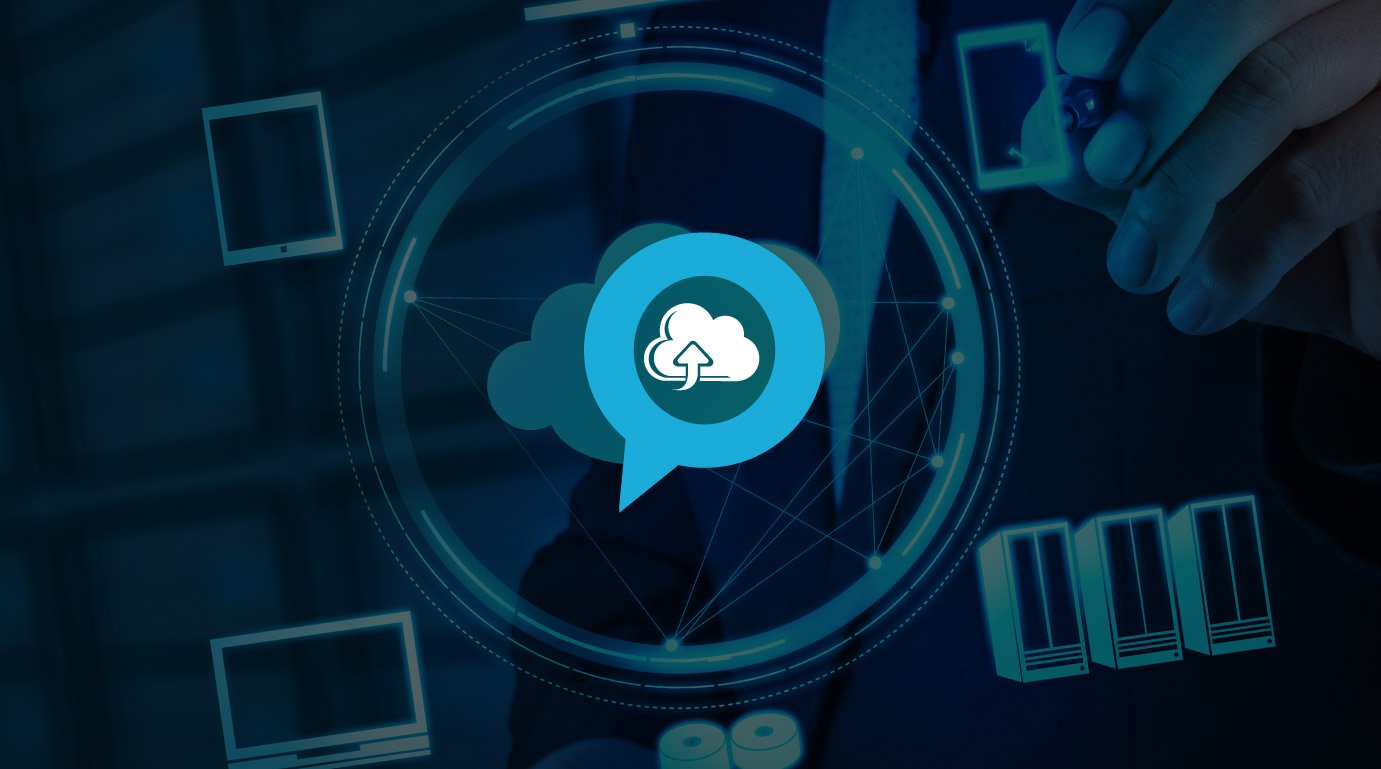
Presented by Blackberry
Talk Mobile Gaming
Clearing the fog: The future of cloud computing
by Rene Ritchie, Daniel Rubino, Kevin Michaluk, Phil Nickinson
There are many visions for the future of computing, and by-and-large they all involve some form of distributed storage and processing. Sure, our computers, tablets, and smartphones will continue to evolve and become more powerful, but so too will cloud services and the internet infrastructure that connects it all.
Whether we're looking at connected headset displays, constantly-syncing smartphones, or present-anywhere virtual machines, the cloud is going to play a significant role in computing in the years ahead.
The future of the cloud isn't going to be without troubles, however. What will it take to get our data everywhere? Are our networks and devices and the services themselves up to the challenge of syncing gigabytes upon gigabytes of data?
If we can have all our data everywhere, do we even need a powerful computer anymore, or can we offload it all onto the cloud and just have a thin client for interaction? And what of our media - is it ours, and will we ever be able to get it our way instead of Hollywoods?
Get the latest news from Android Central, your trusted companion in the world of Android
Let's get the conversation started!
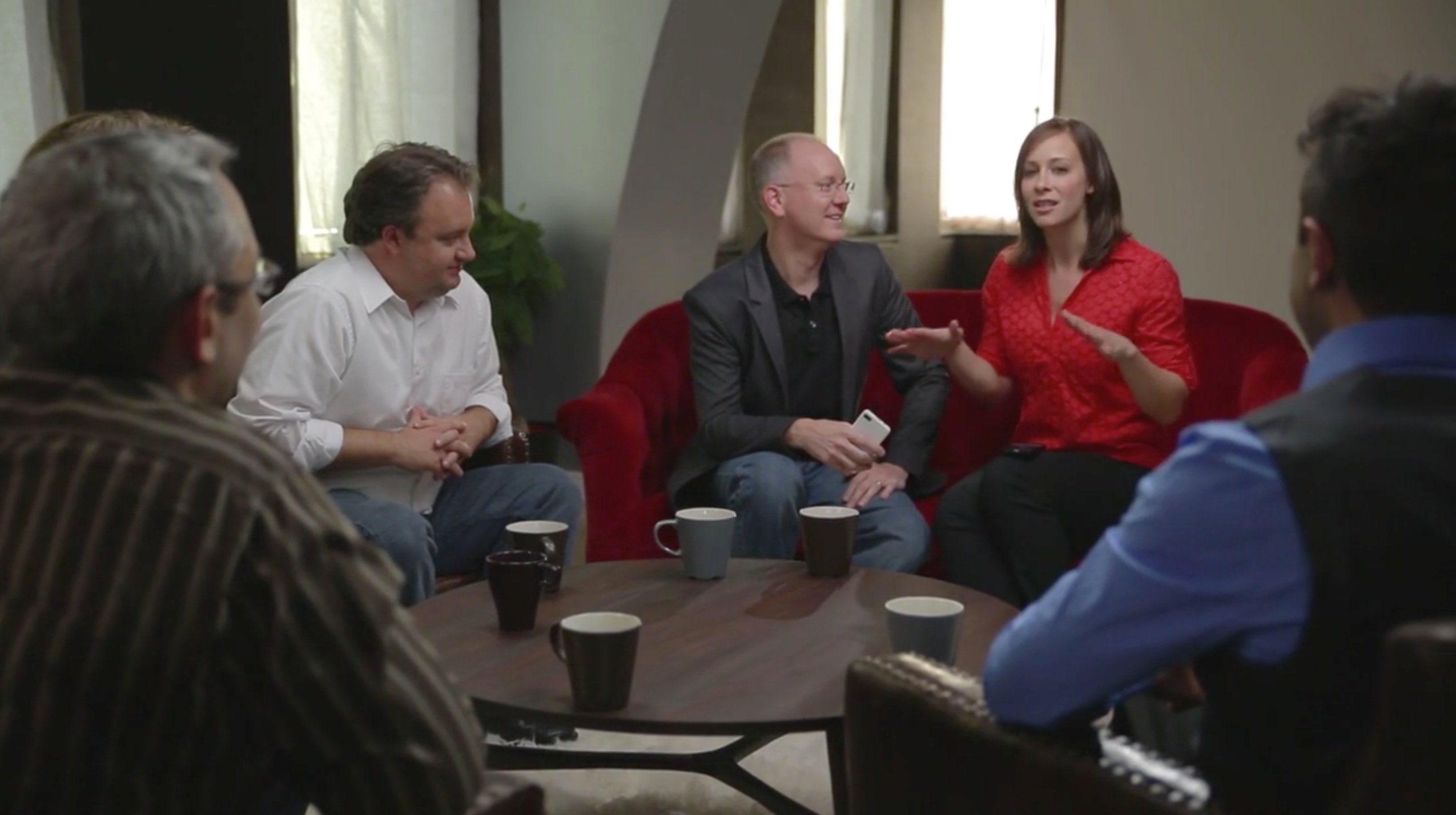




Future clouds
Articles navigation
- Improving the cloud
- Video: Dalton Caldwell
- Thin clients
- Data ubiquity
- Online media
- Conclusion
- Comments
- To top

Kevin Michaluk CrackBerry
Just throw more servers and bandwidth at the cloud
A decade ago, cloud services weren't a thing that we interacted with on a daily basis. "The cloud" wasn't even a term, though it did exist - its role was making data more efficient. Case in point: the BlackBerry Network Operations Center. The NOC managed traffic between device and server by streamlining and compressing data that was sent to devices on the BlackBerry network.
The NOC was necessary then, back when you were lucky if your phone was capable of 100Kbps downloads, and even luckier if your carrier ever came close to providing that. Today we live in a world of LTE that can hit 50 megabits down, or even 75 or 100. The speeds are absurd, rivaling what's available for most home wired connections.
Of course, that's if you have a good LTE connection, which not everybody does. 4G connectivity is spreading, but rural and poor areas will lag behind for the foreseeable future.
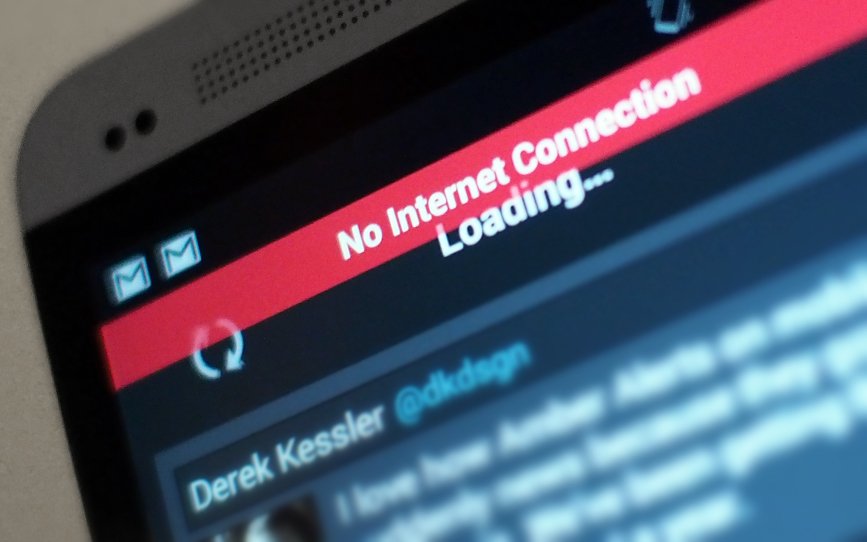
Bottleneck on the backhaul
Bottleneck. It's a phrase that's been applied to automobile traffic, paperwork flow, and manufacturing difficulties over the years, and it's found its way to describing problems on the internet as well. For as digital as we like to think of the internet, it is in fact a very real physical network of cables, transmitters, modems, and servers, all powered by electricity and maintained by human technicians.
Even though the internet is designed to be dynamically managed and distributed, users still encounter slow-downs thanks to increased traffic: bottlenecks. In internet terms, a bottleneck occurs when high use of the network overwhelms the server's ability to process requests as they come in, leading to a backlog of tasks to process. This most commonly occurs at the ISP level in high-density locations where a surge in use in the afternoon and evening can bring the entire network to a crawl.
Bottlenecks also occur at the cloud level. Twitter is the most publicly-bottlenecked service of our day, often slowing or going offline under the overwhelming load of users during unexpected events like celebrity deaths or natural disasters.
Today, for the most part, cloud services are pretty good, though there's always room for improvement. Sometimes it's hard to tell where the improvement needs to happen. Is it the service itself that's faltering, my local internet connection, or something in-between? I don't always know who to blame when a show streaming off Netflix has to downgrade its quality or stop to buffer, or when the music I'm streaming stutters and cuts out.
Is it the service itself that's faltering, my local internet connection, or something in-between?
That said, there's nothing wrong with throwing more bandwidth and more servers at the cloud. A lot of the lag problems in the early years of Android have been solved today by throwing increasingly powerful hardware at it until it could keep up; the same can be done for cloud services. Hell, that's what Twitter had to do when the service took off: more servers, more bandwidth, problem solved.
Bandwidth isn't holding back adoption of cloud services. It's being comfortable with the concept of the cloud, or understanding just what the cloud offers, that's stopping people from jumping on board. But even then we've seen a massive uptake in the past few years - thanks in no small part to a massive uptick in bandwidth. The cloud has momentum now - and clouds aren't easy to stop.
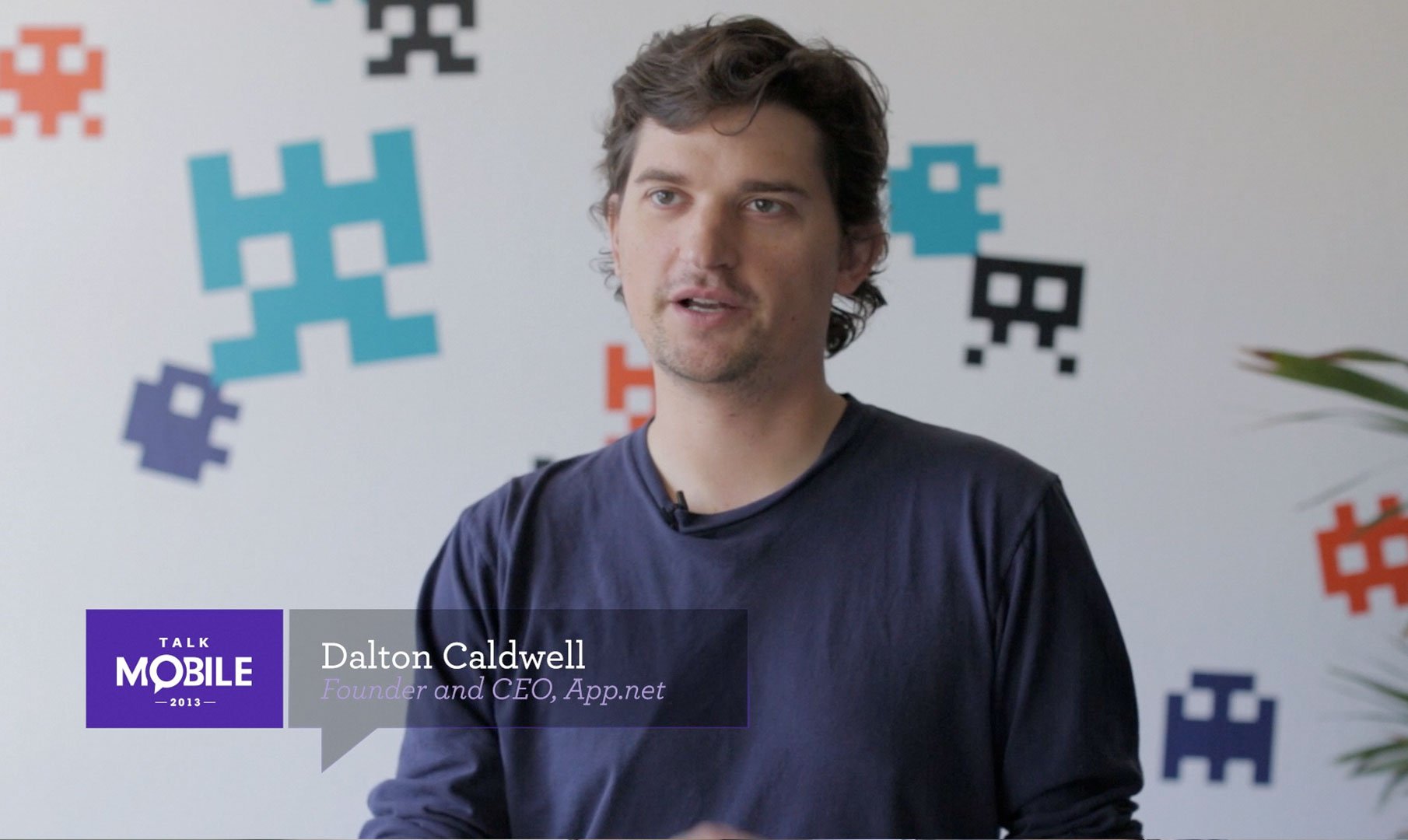
To me, that's what the future is. You have your data, you have your identity, but the fashion will change all the time.
- Dalton Caldwell / Founder and CEO, App.net
What's the next feature cloud services shoul implement?
876 comments
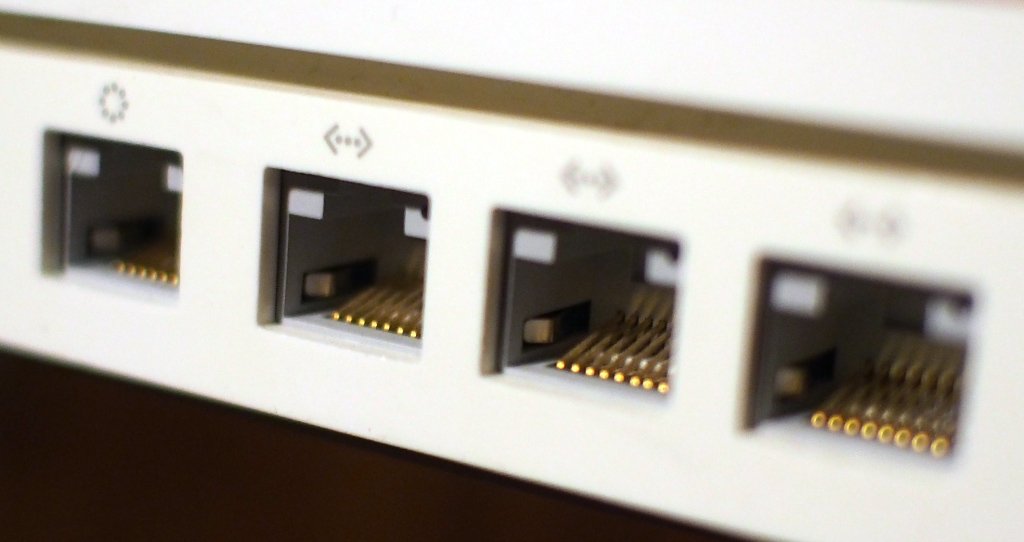
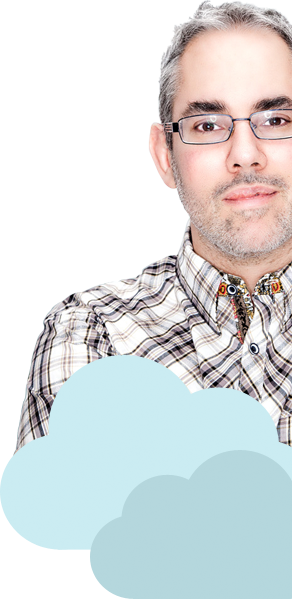
Rene Ritchie iMore
Screw 'thin' clients - I want a fit and healthy client
"Computer!" It's become a cliché. What Scotty said in his brogue, Spock in his monotone, or Kirk in his swagger. What commanded the attention of a vast computational core, and caused it to come squawking out of any terminal, anywhere on the Enterprise. It was the thinnest of clients. And it was a concept that everyone from Sun Microsystems to Oracle to Google would embrace and try to extend for decades.
It's a compelling idea. Giant computers, hidden away, surfaced anywhere a light, convenient interface can be found. It's the dream of every IT administrator who'd rather work from poolside than from a desk. It's the hope of every writer and student who wants to carry the barest minimum hardware still maintain constant connectivity.
It's a future that's always coming but never quite arriving.
And like HTML5 apps, it's a future that's always coming but never quite arriving, and for a similar reason: the web just isn't good for everything, and will never be as good for everything.
Take Google's Chrome OS for example. The Chromebook Pixel is probably the most beautiful thin client ever conceived. And one of the stupidest. It's a powerful machine that costs as much as the Adobe suite, yet can't run Photoshop. It has a retina display that won't display Premiere or After Effects. It's utterly dependent on the internet in an age when the internet is still utterly undependable.
There are, should be, and increasingly will be software and services that make sense to be cloud-based. Not just things like messaging or browsing, which are born of the web, but anything that benefits from collaboration or cooperation. Other than that, nope, sorry. Code it natively so I can access all the power and performance native enables.
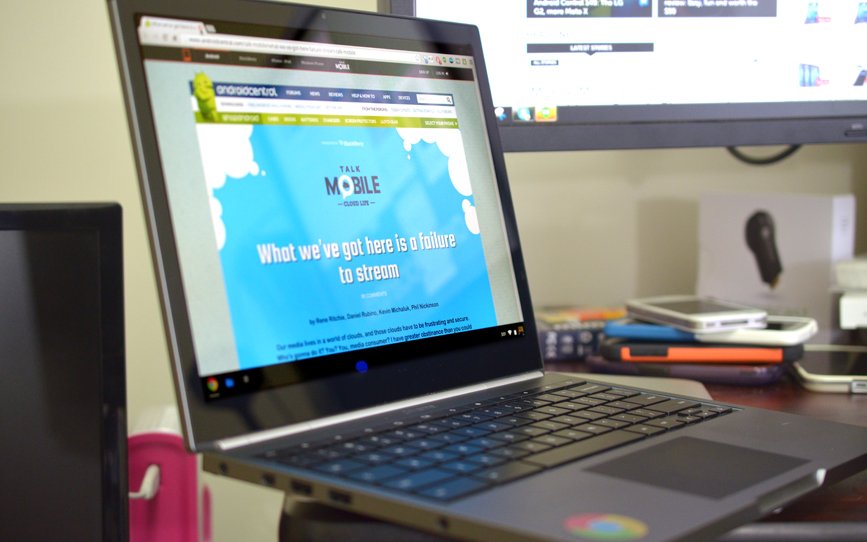
An OS from the cloud
There's only one consumer operating system today that qualifies as a "thin client": Chrome OS. Google's second operating system, Chrome OS is built on top of a Linux core but is designed primarily as a WebKit browser-based system. As such, the Chrome browser (based on WebKit), a media player for music, photos, and videos, and a file browser are the only apps that are installed on Chrome OS.
Shipping in both Chromebook laptops and Chromebox desktops, the hardware Chrome OS runs on is typically lightweight in both its physical and computational measures. With the majority of the processing happening in the web browser and in the Google cloud (Chrome OS ties in nicely with Google's serices), high-powered hardware isn't needed for the Chrome OS experience. Most Chromebooks are relatively cheap, with retail prices in the range of $200 to $400.
Even so, in early 2013 Google released the Chromebook Pixel, a high-end Chrome OS laptop with a super-high-resolution touch display, powerful Intel Core i5 processor, aluminum unibody shell, and a high-for-a-Chromebook $1299 pricetag. Much like Google's line of Android-powered Nexus devices, the Chromebook Pixel wasn't meant as a market-dominating move, but more as a demonstration to consumers and partners of what can be done with Chrome OS.
Rather than a thin client, what seems to be evolving is a client with a nice physique. Not emaciated, it's a right-sized machine backed up by an amazing cloud.
Chrome OS is ahead of its time, and hopefully Google will someday meld its strengths with the native strengths of Android. Dropbox, having already bought Mailbox, may one day field their own cloud-based operating system. So might Facebook, who's already got a bunch of apps and strong cloud infrastructure. And Amazon has server-sided browser in Silk, who knows what's next?
The clients that run any or all of those wouldn't be thin either, they'd just be remarkably fit, and that's what we want from the future.
Talk Mobile Survey: The state of mobile clouds
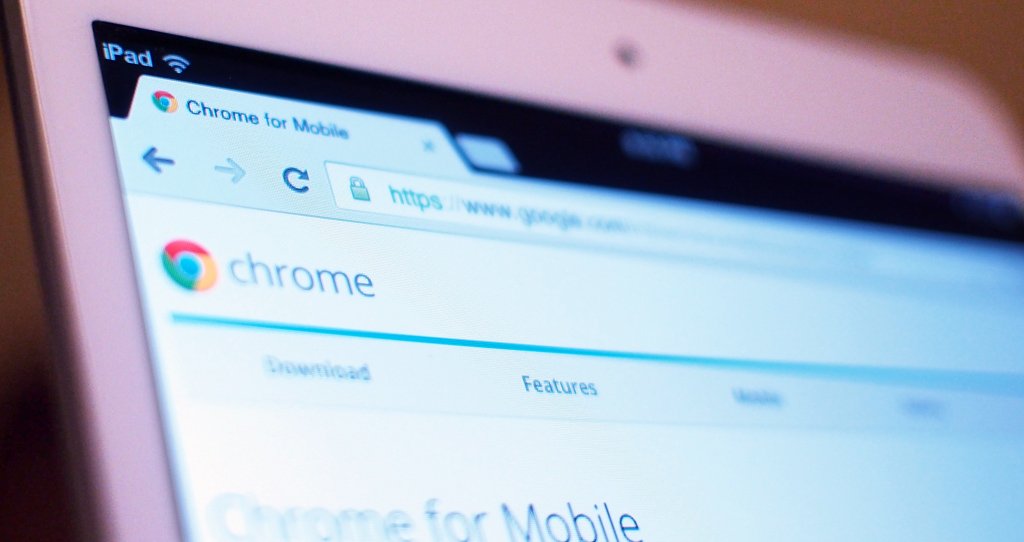
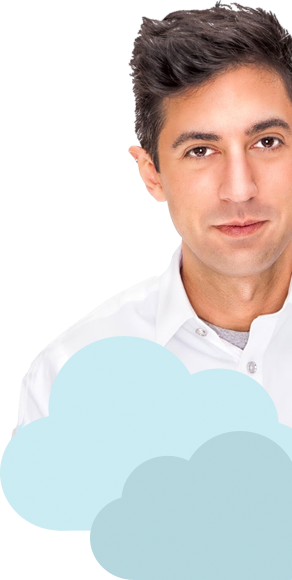
Daniel Rubino Windows Phone Central
All of your data, everywhere, through just one cloud
The road to having all of your information everywhere through the cloud is a long and tedious one, but like all things that deal with computing, it's moving faster than ever. The problem is multifaceted: there are security concerns, availability of storage, bandwidth, cost, file integrity, and incorporating these services into our current systems and behaviors.
There are two paths that can be taken: third-party clouds like Dropbox or SugarSync, and first-party clouds like those created by Apple, Google, and Microsoft. To be frank, the easiest way to get to the all-data-everywhere state will be buying into one ecosystem and its first-party cloud. Dropbox, Box, and all the rest of the third-party gang offer loads of flexibility, but it's tough to beat the integrated nature of the first-party cloud.
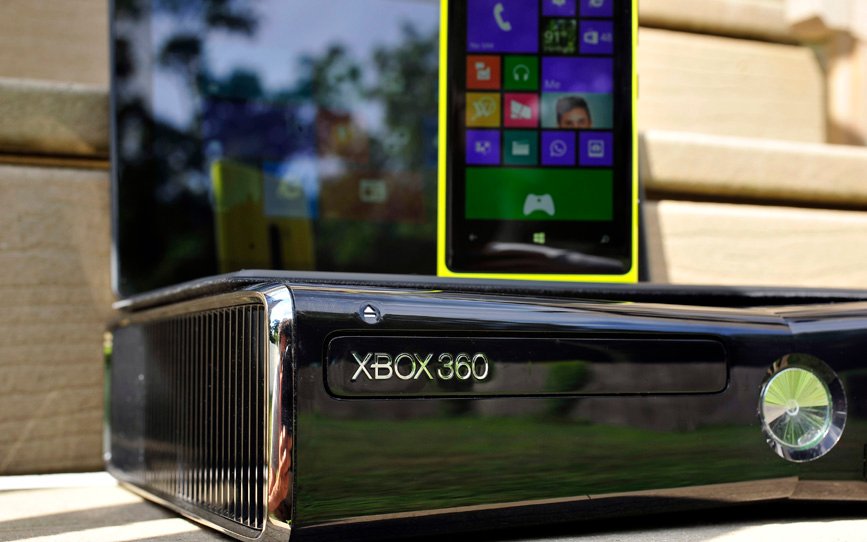
Three screens and a cloud
Microsoft has been talking for some time of their concept of "Three screens and a cloud", an a bridging of devices and services, all powered by Microsoft. Those three screens are the PC (which Microsoft lumps tablets in with), the smartphone, and the living room television.
Microsoft has a healthy foothold in the PC and TV markets thanks to long dominance by Windows on laptops and desktops and a dogged perseverance with their Xbox gaming console line. But tablets, cloud services, and mobile devices have failed to catch on with the public at large, calling Microsoft's strategy into question.
But as with their Xbox strategy, Microsoft is more than willing to pour money into their efforts until they succeed by sheer willpower (and marketing). Microsoft spend billions more dollars than they made in gaming over the first five years of the Xbox's life, and is still making up for the losses with sales of the Xbox 360. Microsoft's Online Services Division - Bing, MSN, other web stuff - has lost more than $11 billion since 2005 in Microsoft's efforts to combat Google. Even so, Microsoft continues to rake in cash from Windows and Office sales, using that money to bolster their efforts in the living room, mobile, and the web.
Hop on with Microsoft and Windows 8.1 will back up nearly everything on your computer to SkyDrive, and you'll be able to access all of that from a Windows Phone. Use a Mac? Get an iPhone and iCloud will seamlessly sync your photos, iWork documents, music, calendar, and more across your whole iEcosystem.
But integrated first-party clouds lock you into that ecosystem. Once you have a Windows 8 laptop paired through SkyDrive with an Xbox One and your Windows Phone, it's hard to justify the switching cost to another platform. There's a SkyDrive app for Android, but is it going to be as integrated of an experience as on Windows Phone? Will a BlackBerry 10 smartphone work well in a household that otherwise runs on Google services?
Integrated first-party clouds lock you into that ecosystem.
Competition is what's driven us to have multiple operating systems, and it's what's driving us to a future with clouds dedicated to those operating systems. It's in the best interests of any manufacturer or developer to make the cost of switching too high, either by loss of features or simply making it inconvenient for customers. It's not great for consumers, but that's just the way it is and will continue to be.
The day that all of your stuff is everywhere is nigh. It is certainly where all of these companies are moving towards today and tomorrow, with vast resources being devoted to the endeavor. It will take time, because for these services to be truly everywhere will require platform updates at a core level. And you'll probably only be able to reap the benefits by buying entirely into the platform ecosystem.
If you could sync your entire computer through the cloud, would you?
876 comments
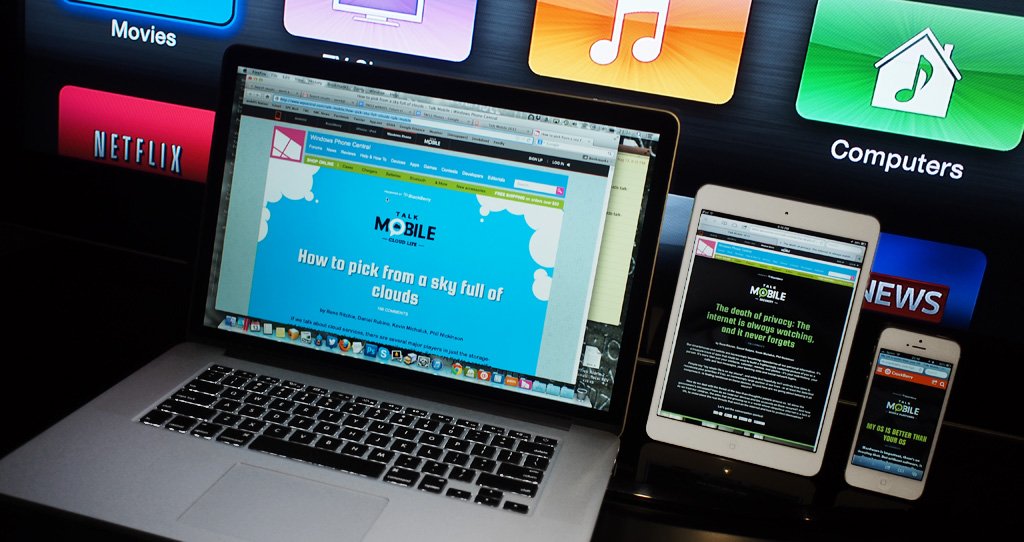
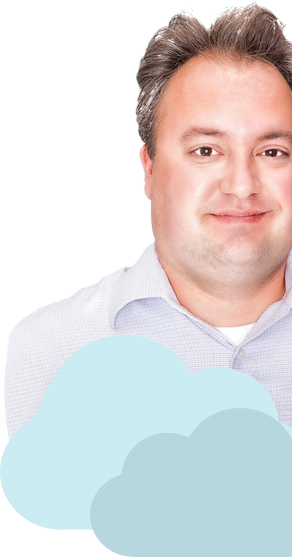
Phil Nickinson Android Central
Hollywood still calls the online media shots
Make no mistake, it's the folks in the mansions in California who control what you watch on your TV, your tablet and your phone. It's not Apple. It's not Google. It's not Microsoft. It's (mostly) not Netflix.
We've all experienced the frustration of searching Netflix for the latest movie and finding nothing. You still can't subscribe to online-only versions of the premium cable channels. For as great as HBO Go and the like are, you still have to have a cable subscription. You, dear user, are at their mercy. And if Hollywood has anything to say about it, that's how things will remain.
If Hollywood has anything to say about it, that's how things will remain.
There is hope. In 2013 we saw the first series produced by Netflix hit the internet. Complete seasons released all at once, for you to watch at your leisure. Binge on a dozen episodes in a single day, or pace yourself. Doesn't matter to Netflix.
With a much lower profile (and far fewer dollars at stake) are any number of independent producers that put out their own content on YouTube, Vimeo, or other platforms. They should be commended, and we should all support them. But the simple fact is that they're swimming upstream, and Hollywood is the bear waiting to bite the head off any salmon unlucky enough to poke its head out of the water.
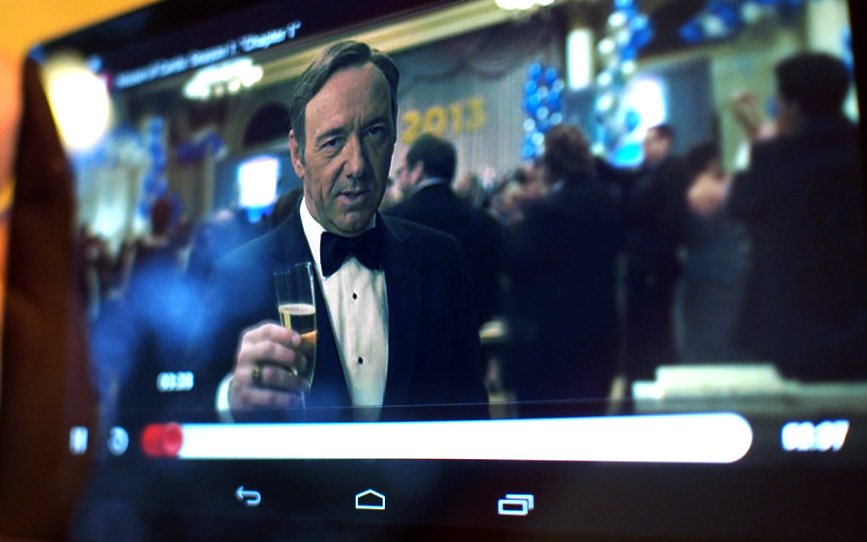
Onlinetime Emmy Awards
Founded in 1997 as a DVD-by-mail company, the future of Netflix was always in its name. DVD rentals are still a large part of Netflix's business, but their streaming video arm is today by far the largest part of the company.
In March 2011, Netflix announced that they were going to begin acquiring and producing original content for their streaming service. The first series to debut on Netflix was the low-profile Lilyhammer in early 2012, a joint production between Norwegian channel NRK and Netflix. Making a bigger splash a year later, however, was the Kevin Spacey-starring political drama House of Cards, followed by a fourth season of the cancelled Fox sitcom Arrested Development. Both landed to rave reviews, as did the third Netflix Original Series: Orange is the New Black.
House of Cards was the first online-only series to be nominated for an Outstanding Drama Series Emmy. Arrested Development's Jason Bateman and Kevin Spacey and Robin Wright of House of Cards were likewise the first actors to receive Lead Actor Emmy nominations for their online work. In total, Netflix received 14 nominations for the 65th Primetime Emmy Awards.
In a perfect world, all video would be available anywhere, at any time. YouTube has made publishing and promoting online video easier than ever. But YouTube (or any other service) usually doesn't own that content. And so we're back at the same formula we started with, with those of us staring at the screen at the dead end of a long, dark road.
There are a lot of little, independent lights working to illuminate that road. But it's a long road to light, and they've got a lot of work ahead of them.
Those of us with young children are raising boys and girls who will never know a world without Netflix. Without YouTube. Without the means to watch any video online, day or night. And, one day, hopefully, they'll know a world in which the studios give us what we want -- their content, whenever and however we want it.
Does the internet stand a chance at overthrowing Hollywood?
876 comments
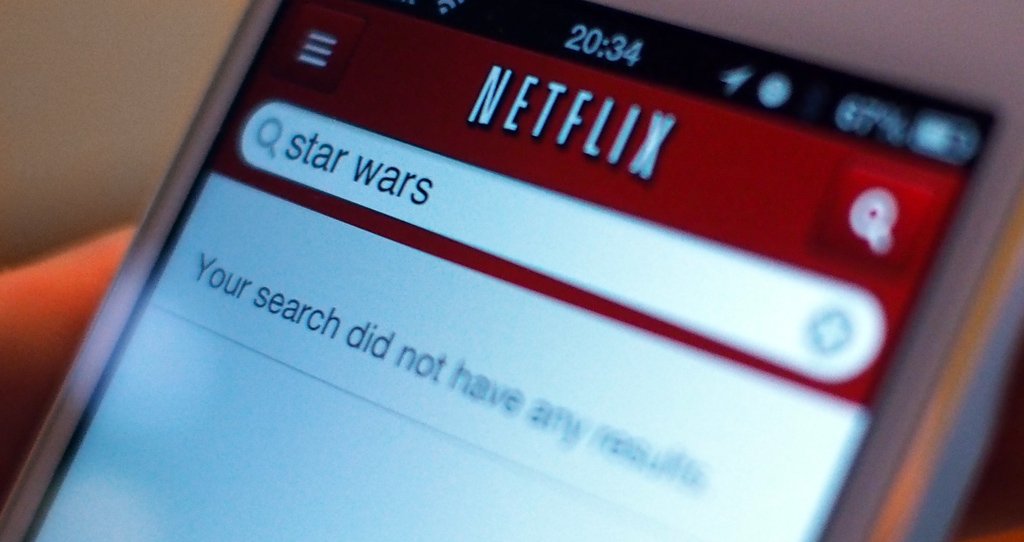
Conclusion
We've been saying it all along: the cloud is the future of computing. But it's not the be-all-end-all of computing. While there's no doubt that the cloud will be more and more involved in our daily computing needs, especially as mobile networks grow stronger, faster, and larger, it's not going to replace our devices as we know them.
Our laptops, smartphones, tablets, and whatever other new forms of personal computing hardware arise in the coming years will continue to become more powerful and more personal, and the cloud is only going to help in that. If it's serving up additional processing power when it's needed, having all of our content on tap at a moment's notice, or simply getting us our emails, the cloud will be there.
But the cloud is going to need better infrastructure if it's going to be with us in new and omnipresent ways. More servers with better redundancy, greater bandwidth, and broader connectivity will all play a part in expanding the reach of the cloud.
We're only in the early days of the cloud. What does the future hold?

